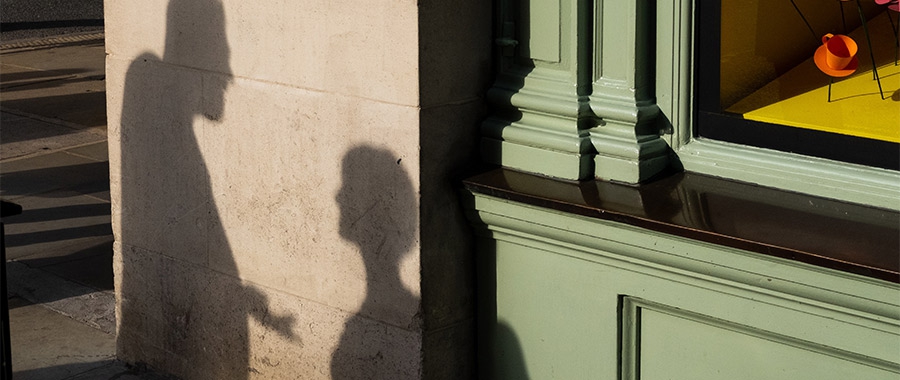The views expressed in our content reflect individual perspectives and do not represent the authoritative views of the Baha'i Faith.
When we have conversations about our society and its issues, if we aren’t careful, even those conversations can become stagnant and unproductive.
In those kinds of conversations, we feel like we’ve reflected on our own experiences in the larger context of the world, and done our due diligence collecting the experiences of others—so we settle into the feeling that we understand some phenomena going on in the world. But even the scientific method that many of us trust to explore our physical reality pushes for continual further exploration. Humanity has complex and multi-faceted issues, so we always have to keep an open eye and mind to deepen our understanding by adding to our worldview.
This can be hard. When we feel passionately about something, we tend to go into debate mode, simply trying to make the strongest argument for the perspective we already believe to be true. It can be difficult to detach and listen to what another person says. Instead, we should endeavor to do as Abdu’l-Baha advised:
In accordance with the divine teachings in this glorious dispensation we should not belittle anyone and call him ignorant, saying: ’You know not, but I know’. Rather, we should look upon others with respect, and when attempting to explain and demonstrate, we should speak as if we are investigating the truth, saying: ’Here these things are before us. Let us investigate to determine where and in what form the truth can be found.’ The teacher should not consider himself as learned and others ignorant. Such a thought breedeth pride, and pride is not conducive to influence. The teacher should not see in himself any superiority; he should speak with the utmost kindliness, lowliness and humility, for such speech exerteth influence and educateth the souls. – Selections from the Writings of Abdu’l-Baha, p. 30.
When I have difficult conversations with other people about race, they usually occur with folks who haven’t experienced being black in this country, and directly benefit from their distance from blackness. Openly embracing their perspective in these kinds of situations can actually feel impossible or toxic.
But I try to let the Baha’i concept of frank and loving consultation guide me in these situations. The Baha’i writings describe consultation as a collective search for truth:
In this conception of the collective investigation of reality, truth is not a compromise between opposing interest groups. Nor does the desire to exercise power over one another animate participants in the consultative process. What they seek, rather, is the power of unified thought and action. – The Universal House of Justice, 26 November 2012.
For example: as a black woman, I have genuine lived experience with racial unity and justice—which means that I don’t always give equal weight to the opinions of someone who has thought very little about race in this country, or who has learned their viewpoints from oppressive cultural norms. But I can recognize that both of our opinions are not equally rooted in reality without undermining that person’s worth or value. Having a conversation that honors a person’s worth does not mean that we have to compromise basic beliefs about justice or equality.
Rather than lashing out when I face someone who perpetuates a lack of understanding, I try to cut to the core of what the person is saying and share the underlying assumption I am hearing them hold. If I have the stamina, I might explain how a certain viewpoint affects me and other black folks emotionally. In doing this I try to avoid a calculated or contentious debate, and instead create a heart-to-heart conversation. Baha’u’llah, the founder of the Baha’i Faith, perfectly described the environment we should create around our conversations:
Consort with all men … in a spirit of friendliness and fellowship. If ye be aware of a certain truth, if ye possess a jewel, of which others are deprived, share it with them in a language of utmost kindliness and goodwill. – Baha’u’llah, Epistle to the Son of the Wolf, p. 15.
I don’t engage in these kinds of conversations with the hopes of single-handedly solving racism, but I give myself a choice when I begin to speak. When we view ourselves as a part of a debate, it can feel like we have to keep talking until we have made our point. When we view ourselves as part of a conversation, we have more freedom to pause the conversation for the well-being of the participants, and know that we don’t have to prove ourselves to anyone. Unlike a debate which is simply won or lost, conversations can be revisited at a later time if left unfinished.
Feeling uneducated about a matter can also block us from engaging in conversation. In these cases, we should fight through our fear of the unknown. It’s okay to speak when uncertain—just do so, the Baha’i teachings say, with humility and tact:
Human utterance is an essence which aspireth to exert its influence and needeth moderation … as to its moderation, this hath to be combined with tact and wisdom … – Baha’u’llah, Gleanings from the Writings of Baha’u’llah, p. 143.
















Comments
Sign in or create an account
Continue with Googleor